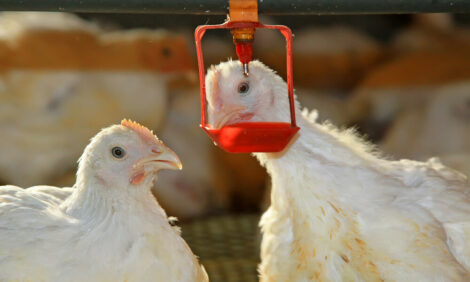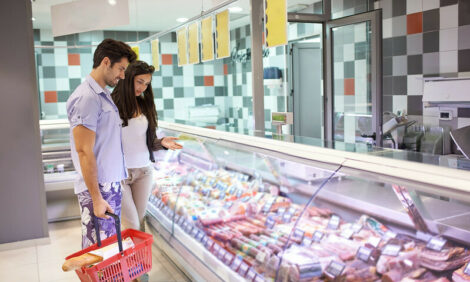



Biosecurity Concerns Fuel Australia's Free-range Egg Debate
AUSTRALIA - Egg farmers are calling for greater clarity in free-range to begin investing.A poultry consultant says egg farmers have stopped investing in their industry, because of confusion over what is free range, reports ABC Rural.
There has been a dramatic rise in demand from consumers for free range, but no clarity from governments on what that label demands.
The egg industry is also watching legal action from the Australian Consumer and Competition Commission, which is cracking down both on mislabelling of free-range eggs and on alleged attempts to create a cartel.
Free-range egg sales make up 40 per cent of the market, a rapid rise, and they are growing in value faster than caged eggs.
Nadine Van Den Boom cannot take visitors on the family-owned Nixon Free range farm, because of concern for bird health, particularly avian influenza. It might arrive on mud, from exposure to wild ducks, which could carry the virus from outside the enclosure.
She says the Nixon farm stocks at 10,000 birds per hectare, giving them room to behave like chickens.
She told ABC Rural: "The chickens have a wide outside area, where they can have enough space to run around and they have a good life. We also have to meet the demand that's on the market. We make sure our chickens are OK, but we've also got customers to take care of, otherwise there's no point in being in business."
She says the farm is only just keeping up with demand: "We're working overtime, delivering eggs even on the weekend. Every egg is sold already. At the end of the week, I've got nothing sitting in the cool room. We're just meeting the demand."
The current shortage of eggs is due to the destruction of 400,000 birds at a farm in New South Wales in 2013, which the NSW Farmers Egg Committee chair, Bede Burke, says made up about four per cent of the egg production. In that case, wild ducks infected the farm with a bird flu that doesn't transmit to humans.
At the time, the industry warned consumer demand for free-range eggs would reduce supply.
An independent poultry consultant, Greg Mills, says debate over stocking density of free range leaves the industry without a will to invest.
He explained: "Most definitely, we're seeing very little investment in the egg industry at the moment.
"The payback if we were to build a new farm we'd be looking at 14 years and we're seeing codes change and community expectations change. If you were to invest money in an egg farm today, you may not know what the standards going to be next week, in two years' or five years' time.
"We saw big investment in new cages probably only six to eight years ago and now we're looking to change those again. A lot of people are wondering if it's a good place to invest."
Egg farmers are also watching their peak research and marketing body, Australian Egg Corporation, which is about to front court, accused of attempting to run a cartel in 2012 for allegedly inducing egg producers to cull birds or destroy eggs to cope with an oversupply crisis, reports ABC Rural.
The Egg Corporation says it will co-operate with the court in the matter.
The ACCC's application to the Federal Court is asking for an injunction against the Egg Corporation AECL and the directors Zelko Lendich and Jeffrey Ironside, of Farm Pride Foods and Twelve Oaks Poultry, "restraining for a period of five years, from inducing or attempting to induce whether by encouragement, threats, promises, arranging meetings or otherwise, any egg producers or suppliers in Australia to enter into any contract, arrangement or understanding containing a provision that has a purpose of directly or indirectly preventing, restricting or limiting the production for the supply of eggs."
Mr Mills says the issue has not breached any trust with the consumer.
He said: "To the consumer, I don't think it will do much, like this morning 300 to 400 egg farmers got up, fed and checked their animals to see if they were fit and healthy and started packing what is a very healthy and affordable product for consumers. That's what they see when they open the carton."
Supply goes up and down and at the moment, there is a shortage, especially with rising free-range demand. But what is free range still has no uniformity.
Mr Mills continued: "The standard says 1,500 birds per hectare, but could be higher if you rotate your systems - 20,000 per hectare in one state, 10,000 hens per hectare in other states.
"There's even we've just seen a new code come out from one of the welfare groups, a non-government organisation, of 50,000 per hectare."
But Mr Mills says the stocking density is not an issue about welfare. It is more about how to market it to the confused consumer.
In response to the lack of consensus on free-range standards, a new committee has been formed which Mr Mills now chairs. The Council for Sustainable Egg Farming is in the process of appointing academics and poultry scientists.
He explained: "There's not much we can do to improve welfare anymore that doesn't have a trade-off. If I want to take birds out of cages, and put them in free range, I'll probably have higher incidences of mortality and incidences of illness. There is no good or bad any more."
Federal Agriculture Minister, Barnaby Joyce, is no friend of animal rights groups who want cages banned and free-range made standard, according to ABC Rural.
The minster said: "I'm a sceptic about the whole free-range idea because it's an avenue for bringing in avian influenza into the poultry population."
Mr Joyce refers to research on bird stress, at the University of Sydney, which found 'there's no real differentiation between free range and caged birds'.
But Nadine Van Den Boom, of Nixons free-range, says egg farmers need certainty.
She said: "Nobody really knows what the legal requirements are, so if the government just set a standard that everybody has to comply with, it would be way easier."









